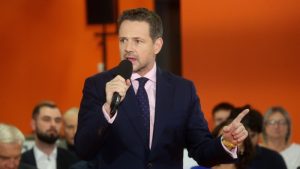Business welcomes UK ministers’ commitment to nurturing economic growth
Unlock the Editor’s Digest for free
Roula Khalaf, Editor of the FT, selects her favourite stories in this weekly newsletter.
Business bosses welcomed an upbeat tone from UK Prime Minister Sir Keir Starmer and chancellor Rachel Reeves as they sought to rebuild momentum behind the government’s agenda to boost economic growth at Labour’s annual conference.
In a speech on Monday, Reeves promised the government would unveil a new industrial strategy and highlighted steps ministers had already taken to try to boost growth, including plans to streamline the planning system and remove a ban on new onshore wind farms.
Her speech came after grumbling from some executives that ministers had been too negative about the UK’s economic and fiscal position, and too slow to unveil detailed policies ranging from an industrial strategy to the finer points of the government’s worker rights reform.
Shevaun Haviland, director-general of the British Chambers of Commerce, said Reeves’s speech “was a vital moment to lift the tone and for the chancellor to champion the critical importance of economic growth, increased exports and investment”.
“Businesses will be keen to get more detail,” she added, including on potential tax rises.
Rain Newton-Smith, boss of the CBI business lobby group, said companies would be “reassured to hear that while the government won’t duck difficult decisions, they will be taken in the context of a return to long-term sustainable growth”.
A record 500 business people attended a sold-out “business day” at Labour’s conference on Monday.
Attendees paid £3,000 per ticket, and some said the event had a significantly less “VIP” feel than last year.
Last year 200 attendees sat at round tables with shadow ministers but at Monday’s event, the furniture was removed to make space for more seats.
Reeves’s speech in the main conference hall was live streamed into the business day venue, and the chancellor and Starmer subsequently participated in question and answer sessions with executives and company advisers, moderated by WPP’s former UK president Karen Blackett and Google’s UK boss Debbie Weinstein.
Several attendees said they learned little from the discussions and noted that in a break from last year, there were no private sessions with Labour’s top team. Most acknowledged that it was difficult for ministers to give any details on tax or spending plans ahead of Reeves’s Budget on October 30.
But business people welcomed the government’s positive tone towards private enterprise.
“Wealth creation is the number one mission,” said Starmer, as he reiterated his call for business to “partner” with the government to remove economy-wide barriers to growth such as skills development as well as sector-specific challenges.
He told executives that if they were struggling to get a response from the government or find the right person to talk to they should contact his office directly.

Business secretary Jonathan Reynolds continued Labour’s enthusiastic wooing of business, which the party courted extensively before the July 4 general election.
“I want you to invest in the UK and make a profit,” said Reynolds after taking questions from executives.
Deputy prime minister Angela Rayner, whose trade union ties are a cause of concern for some executives, also spoke briefly at the business day.
Business applauded Reeves’s pledge to publish a detailed industrial strategy.
It was vital that ministers move “without delay” to confirm the details of the strategy, said Stephen Phipson, chief executive of the manufacturers’ lobby group Make UK.
Labour’s pitch to business has centred around nurturing economic and political stability as a foundation for growth, but some executives have become impatient at the lack of progress in implementing the government’s plans since July 4.
“We need to see some detail,” said one industry leader at the business day. Others complained about the government’s warnings of a tough Budget involving potential tax rises.
Some attendees noted wryly the background music in the venue where the business day was held included Adele’s “Water under the bridge”, which contains the lyrics: “If you’re gonna let me down, let me down gently; don’t pretend that you don’t want me.”
But other attendees said that while they wanted to see rapid progress on Labour’s agenda to boost growth, it was too early to judge the government.
One said ministers were “damned if they do and damned if they don’t”, because businesses favour the government taking time to consult on any reforms, but also want policies to be implemented rapidly.
#Business #welcomes #ministers #commitment #nurturing #economic #growth




